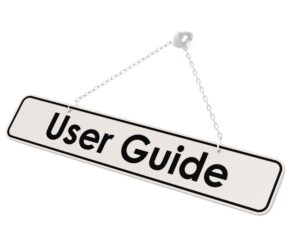
What is a Lien?
According to Black’s Law Dictionary, a lien is “the principle under which an insurer that has paid the loss under an indemnity policy is entitled to take on all the rights and remedies belonging to the insured against a third party concerning any injuries or breaches covered by the policy.”
In layman’s terms, a lien is when a third party is interested in the underlying workers ‘compensation claim by providing services or paying for services connected with a claim. Liens can arise in several instances but often include:
- A health care provider providing medical services but not being paid by the workers’ compensation insurance carrier due to a billing error, denial of primary liability, or denial based on arguments of reasonableness and necessity of care;
- An insurance company (often a health insurance plan) paying outstanding medical bills that were incorrectly billed or denied for some reason by the workers’ compensation insurance carrier; and
- A government entity (Medicare, Medicaid, etc.) or Health & Welfare Fund (ERISA) paying for medical care related to a claim for any reason.
The bottom line is interested stakeholders seeking to resolve a workers’ compensation claim need to investigate these claims, ensure they are put on notice, and resolve the claims. Failure to do so can result in delay or a settlement being vacated at some point in the future.
Tips for Negotiating and Reducing Common Liens
Several common themes for resolving liens held by private entities such as a doctor’s office, hospital, or other health insurance carrier. It is essential to treat all parties with respect and dignity because people like to do business with people they like.
- Understanding their recovery rights may be defined by the contract, statute, or local custom. Examples include state laws that grant hospitals certain legal protections when providing medical care to injured parties. It is also essential to be aware of state-specific workers’ compensation fee schedules related to parties’ rights.
- Provide timely notice and recognize the rights of the interested party. Some states require a party holding an interest in a claim to be given formal legal notice under a statute or administrative rule. Failure to follow these specific procedures may hinder the ability to finalize a settlement. In the same regard, these same procedures may also allow parties to extinguish the intervention rights of parties who fail to promptly file the necessary paperwork with the court or industrial commission.
- Communicate and cooperate with all parties on time and be honest and ethical. Concepts of full disclosure and good faith negotiations are a must. Ensure you can back up all claims made about the strengths of your defenses when negotiating.
Never forget – Do not be a jerk! You can be a zealous advocate while still respecting the other party.
Dealing with Government Programs and ERISA
Beware when dealing with government programs such as Medicare and Medicaid, and never forget the rights of an ERISA plan are defined by federal law. These agencies and Plans have many tools to obtain recovery with the ultimate goal of protecting the American taxpayer.
- Timely recognition and notice to a federal government program in workers’ compensation actions. This may include the inclusion of a Medicare Set-aside in the settlement.
- Federalism 101: State law limitations may be trumped by federal law in terms of priority and recovery. It is essential to understand that Medicare often does not reduce its conditional payment amounts based on case law holding these are not “liens” in the true sense of the word. Although Medicaid programs are administered at the state level, they are still subject to federal mandates and constraints.
- Communication and cooperation – even if they do not provide a timely response.
Conclusions
More often than not, any workers’ compensation settlement will include identifying and resolving a lien. It is important to review claims early and often as things can change. When working with a lienholder or government entity, it is important to understand the controlling law or contract and treat them with respect and dignity. Most of all, be professional and do not be a jerk.
 Author Michael Stack, CEO Amaxx LLC. He is an expert in workers’ compensation cost containment systems and helps employers reduce their workers’ comp costs by 20% to 50%. He works as a consultant to large and mid-market clients, is a co-author of Your Ultimate Guide To Mastering Workers Comp Costs, a comprehensive step-by-step manual of cost containment strategies based on hands-on field experience, and is the founder & lead trainer of Amaxx Workers’ Comp Training Center, which offers the Certified Master of Workers’ Compensation national designation.
Author Michael Stack, CEO Amaxx LLC. He is an expert in workers’ compensation cost containment systems and helps employers reduce their workers’ comp costs by 20% to 50%. He works as a consultant to large and mid-market clients, is a co-author of Your Ultimate Guide To Mastering Workers Comp Costs, a comprehensive step-by-step manual of cost containment strategies based on hands-on field experience, and is the founder & lead trainer of Amaxx Workers’ Comp Training Center, which offers the Certified Master of Workers’ Compensation national designation.
Contact: mstack@reduceyourworkerscomp.com.
Workers’ Comp Roundup Blog: http://blog.reduceyourworkerscomp.com/
©2022 Amaxx LLC. All rights reserved under International Copyright Law.
Do not use this information without independent verification. All state laws vary. You should consult with your insurance broker, attorney, or qualified professional.


























